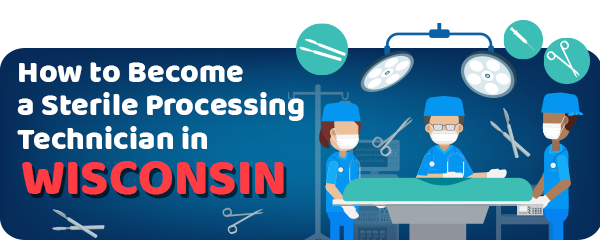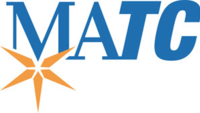The healthcare industry provides an excellent working environment known for its stability compared to other professions.
One career path you can pursue is that of a sterile processing technician.
If you’re considering this profession, it’s important to understand the requirements involved in becoming a sterile processing technician in Wisconsin.
Article Table of Contents
Sterile Processing Technician Job Duties and Skills in Wisconsin
In Wisconsin, obtaining a license is not mandatory for securing your first job, a common practice in most states across the US.
However, this does not diminish the importance of certification.
Many healthcare facilities prefer to hire certified sterile processing technicians, often requiring candidates to possess relevant experience.
Certification serves as evidence of your skills, knowledge, and ability to perform the job effectively.
Daily tasks as a sterile processing technician may include:
- Perform inventory checks
- Clean, sterilize, decontaminate, package, and store medical equipment
- Maintain and repair medical tools and equipment
- Control and monitor the spread of disease and infection
In addition to these responsibilities, you should also possess the skills below:
- Strong organizational skills
- Able to identify and troubleshoot common sterilization issues
- Able to manage storage problems
- A good understanding of medical terminology and aseptic techniques
- Critical thinking,
- Being respectful,
- Accountability and personal responsibility
Keep in mind that job tasks and required skills may vary depending on the facility.
How to Become a Sterile Processing Technician in Wisconsin
Let’s explore the process of becoming a certified sterile processing technician in Wisconsin.
There are several paths to achieve this goal, with the easiest being to take and pass the national certification exam, typically lasting three hours.
Various organizations offer certification exams in Wisconsin, including the Healthcare Sterile Processing Association (HSPA).
HSPA provides five levels of licensing, but the entry-level certification is sufficient to start your career.
Upon obtaining the entry-level certification, you can further enhance your credentials by taking the Certified Registered Central Service Technician (CRCST) certification exam.
Another option is pursuing certification through the Certification Board for Sterile Processing and Distribution (CBSPD).
To become licensed through CBSPD, you must pass the exam and get a year of work experience.
Additional requirements for certification may include:
- Completing approximately 400 hours of laboratory experience
- Submitting the required fee
- Holding a high school diploma or a GED
- Passing a background check and drug tests
- Successfully passing the licensing exam
Remember that your sterile processing technician certification will need to be renewed annually.
To stay maintain your professional competence, attending additional classes and workshops is recommended.
Training Programs for Sterile Processing Technicians in Wisconsin
Wisconsin provides many options for individuals aspiring to become sterile processing technicians.
Mid-State Technical College Marshfield 
Mid-State Technical College, situated in Marshfield, Wisconsin, offers a convenient location accessible to students from across the state.
The college provides flexibility in learning options, offering both in-person classes and online instruction.
Whether through physical attendance or virtual learning,
Mid-State Technical College equips students with the necessary skills to prepare for certification as sterile processing technicians.
Milwaukee Area Technical College 
Milwaukee Area Technical College is located in downtown Milwaukee and is known for its exceptional training in healthcare professions.
Some areas of learning include:
- Introduction to Sterile Processing
- Surgical Instrumentation
- Equipment Safety Management and Tracking
- Decontamination & Sterilization Procedures and Practices
- Computer Basics
- CPR & First Aid
- Infection control practices
- Microbiology
Chippewa Valley Technical College 
This technical school is affiliated with the Wisconsin Technical College System and provides courses specifically designed to prepare students for certification as sterile processing technicians.
In addition to the sterile processing technician program, the school offers a diverse selection of other programs to cater to different career interests.
Financial assistance options are available for many of these programs, providing students with opportunities to receive support in funding their education.
| School Name | Address |
|---|---|
| Chippewa Valley Technical College | 2320 Alpine Rd, Eau Claire, WI 54703 |
| Mid-State Technical College | 2600 W 5th St, Marshfield, WI 54449 |
| Milwaukee Area Technical College | 700 W State St, Milwaukee, WI 53233 |
Sterile Processing Technician Salaries in Wisconsin
After obtaining your sterile processing technician license in Wisconsin, you will discover a multitude of employment prospects awaiting you.
Hospitals, laboratories, doctor’s offices, clinics, and dental practices rely heavily on skilled sterile processing technicians to ensure the proper sterilization of crucial medical instruments.
You may be also wondering about the salary of a sterile processing tech.
Professionals in this field can anticipate an annual salary of approximately xxx, accompanied by an hourly rate of xxx.
However, salaries can vary based on experience, additional certifications, and the specific employer.
Certain facilities may offer higher compensation packages or supplementary benefits as part of their efforts to attract and retain highly qualified technicians.
Wisconsin’s growing medical industry ensures a promising job market with ample opportunities for career growth and advancement.
Annual Salary Range:| Location | Avg. Annual Salary |
|---|---|
| Milwaukee | $45,418 |
| Waukesha | $45,247 |
| Kenosha | $45,083 |
| Racine | $45,083 |
| Madison | $44,966 |
| Janesville | $44,779 |
| Appleton | $44,033 |
| Green Bay | $44,024 |
| Eau Claire | $43,934 |
| Oshkosh | $43,748 |
Regional Salary in Wisconsin
| Region | Employed | Avg. Annual Salary | Avg. Hourly Pay | Top 10% Annual Salary | Bottom 10% Annual Salary |
|---|---|---|---|---|---|
| Appleton, WI | 30 | $45,110 | $21.69 | $54,580 | $36,390 |
| Eau Claire, WI | 60 | $44,770 | $21.52 | $56,970 | $36,880 |
| Green Bay, WI | 90 | $43,570 | $20.95 | $46,390 | $37,130 |
| Kenosha, WI | 40 | $41,900 | $20.14 | $50,900 | $28,620 |
| Madison, WI | 220 | $52,030 | $25.01 | $66,600 | $39,050 |
| Milwaukee-Waukesha, WI | 430 | $46,040 | $22.14 | $51,310 | $37,720 |
| Wausau, WI | 40 | $40,040 | $19.25 | $47,750 | $37,120 |
* Employment conditions in your area may vary.
Frequently Asked Questions
Why should I become a sterile processing technician in Wiconsin?
The crucial role of sterile processing technicians is essential in maintaining the safety and operation of medical facilities.
Their expertise and training prevent the rapid spread of germs and pathogens within healthcare settings.
A dedicated team of sterile processing technicians helps doctors and nurses focus more on delivering quality patient care because the latter know that a sterile environment is being maintained efficiently.
Do I need a college degree to become a sterile processing technician in Wisconsin?
Obtaining a college degree is not a prerequisite to enter this profession, which is one aspect that appeals to individuals considering this medical career.
The required courses for certification can be completed in as little as one semester, making it an attractive option for those who wish to begin their careers promptly.
This flexibility allows individuals to embark on their professional journey without the extended time commitment often associated with pursuing a traditional degree.
What requirements must I meet to be accepted in one of the mentioned colleges?
Many schools that offer a medical training program ask for the following:
- Having a high school diploma, GED, or college transcripts (in English)
- Having a copy of state ID or Driver’s License
- Being a minimum of 17 years old
- A completed enrollment packet
- Paying the registration fees
- BLS card from American Heart or Red Cross (if applicable)
- Proof of immunizations:
- Tetanus/Diphtheria/whooping cough (TDaP)
- Mantoux (Tuberculous) Test (PPD) -negative
- Measles/Mumps/Rubella
- Varicella (chicken pox)
- Hepatitis B
- Influenza
- Covid
These prerequisites won’t matter for an online training program, though might be asked upon getting hired.
Read the full guide: How to Become a Sterile Processing Technician



